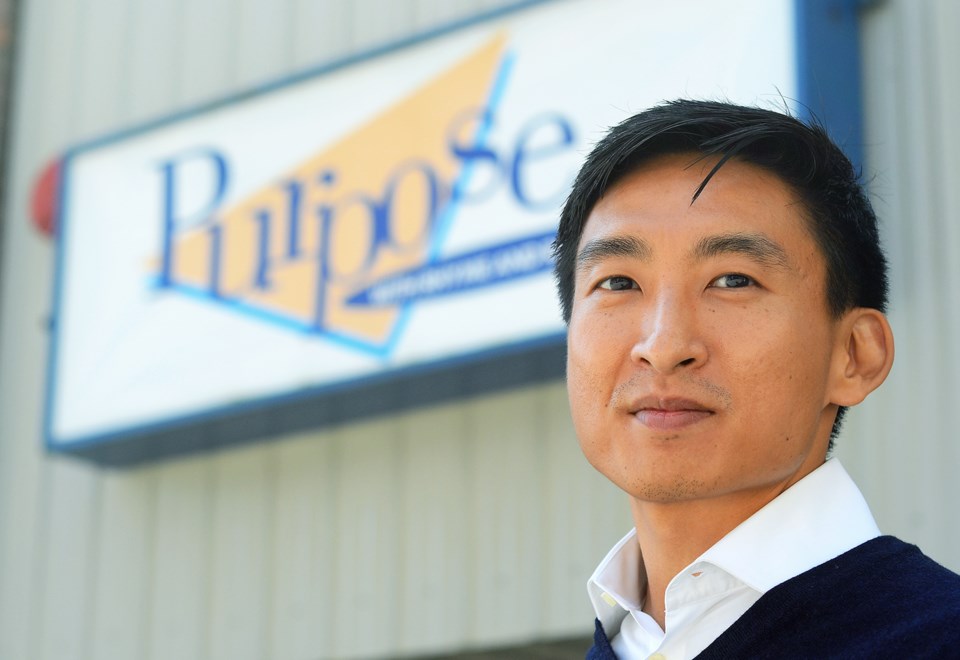Some refugees escaping hardship in their home countries battle an extra layer of stress as they try to start a new life in Canada – HIV.
“Some clients find out about their HIV through the immigration medical exam,” Lower Mainland Purpose Society immigration case manager Motoi Matsukura told the Record.
Whether they come to Canada knowing they are HIV positive or find out when they get here, a diagnosis can fill clients with fear and stress, Matsukura said, depending on the stigma associated with the disease in their home countries and the level of health care available there.
Piled on top of the stress of negotiating the immigration/refugee process, the strain can be overwhelming.
Matsukura was hired six months ago to help.
During a one-year, Fraser Health-funded pilot project at his New Westminster non-profit, he is helping HIV-positive refugees and new immigrants with everything from setting up bank accounts and filling out forms, to finding the right legal and medical help.
“He’s kind of like their guide through the system,” Purpose Society program director Lynda Fletcher-Gordon said. “In the end, maybe one of the most important parts of his position is being able to say, ‘Keep going. We can do it.’”
So far, the program, which is part of the Purpose Society’s Stride with a Purpose HIV/AIDS and Hepatitis C Program, has five clients from Zimbabwe, Ethiopia and the Philippines.
But attracting newcomers isn’t easy.
“Lots of people come from countries where they don’t trust anything to do with government, so then you come and say you’re from an agency and you want to help. They have no reason to believe you or to want services from you,” Fletcher-Gordon said.
Added to that, Matsukura said, is the stigma and fear associated with HIV/AIDS in many countries.
“From our point of view, there’s nothing to worry about,” said Matsukura. “Just go to your doctor and you can live just like (HIV) negative people. But, depending on the client, they don’t have that understanding and they limit their lives to their own understanding of what HIV is.”
Some clients become isolated as a result, avoiding connections even in their own immigrant communities for fear their HIV status will become known.
“The different cultural communities in the end are very small,” Fletcher-Gordon said, “and so they don’t want their business out there in any way shape or form. In order to prevent any kind of talk or gossiping or whatever, they just don’t have anything to do with their cultural group.”
Matsukura – an immigrant himself 15 years ago – is working to make up for this lack of connection, helping HIV-positive refugees and new immigrants navigate the immigration or refugee claims process, set up a new life and find the right medical care.
HIV is often the last thing his clients want to talk about.
“It takes time,” he said. “They don’t want to talk about HIV at the first meeting. They are so afraid of HIV, they need time to come to the point that they are able to talk about it.”
More often it is the more mundane things that have allowed Matsukura to make meaningful connections, like helping one of his clients set up a bank account recently.
“Up to that point, I think she was very skeptical about everything,” he said, “but after we set up her bank account, which was her first step in rooting in Canadian society, she almost cried. We think it’s just a simple thing, but for her, even that small step is giving hope for her to start a new life here.”
For more information about the pilot program, visit www.purposesociety.org, email info@purpose
society.org or call 604-526-2522.



